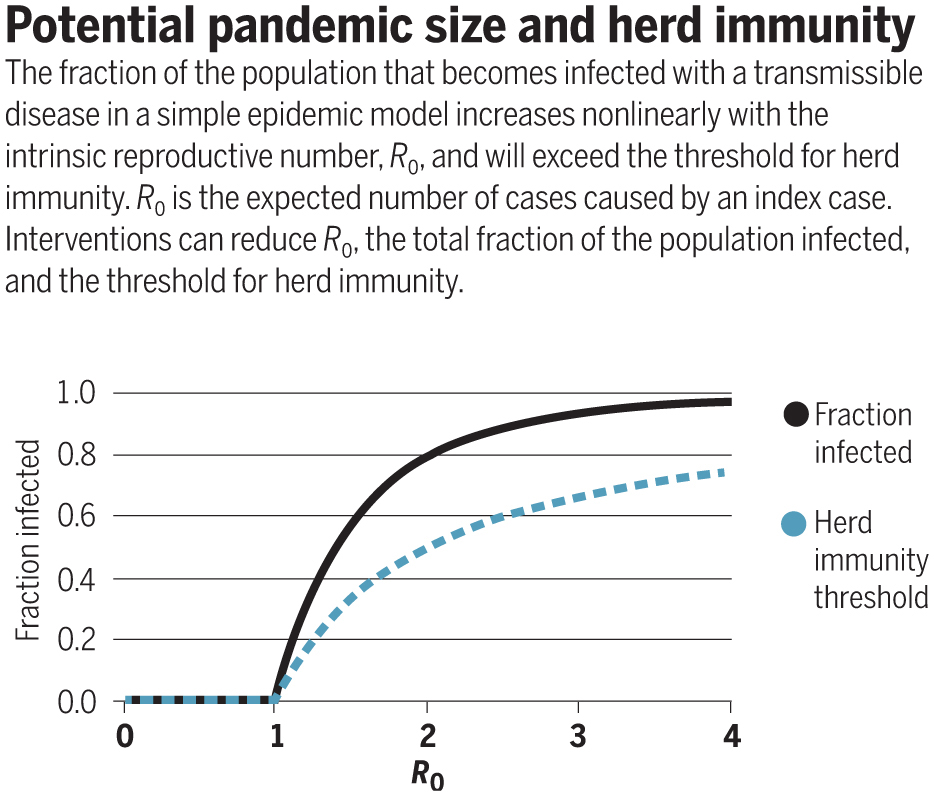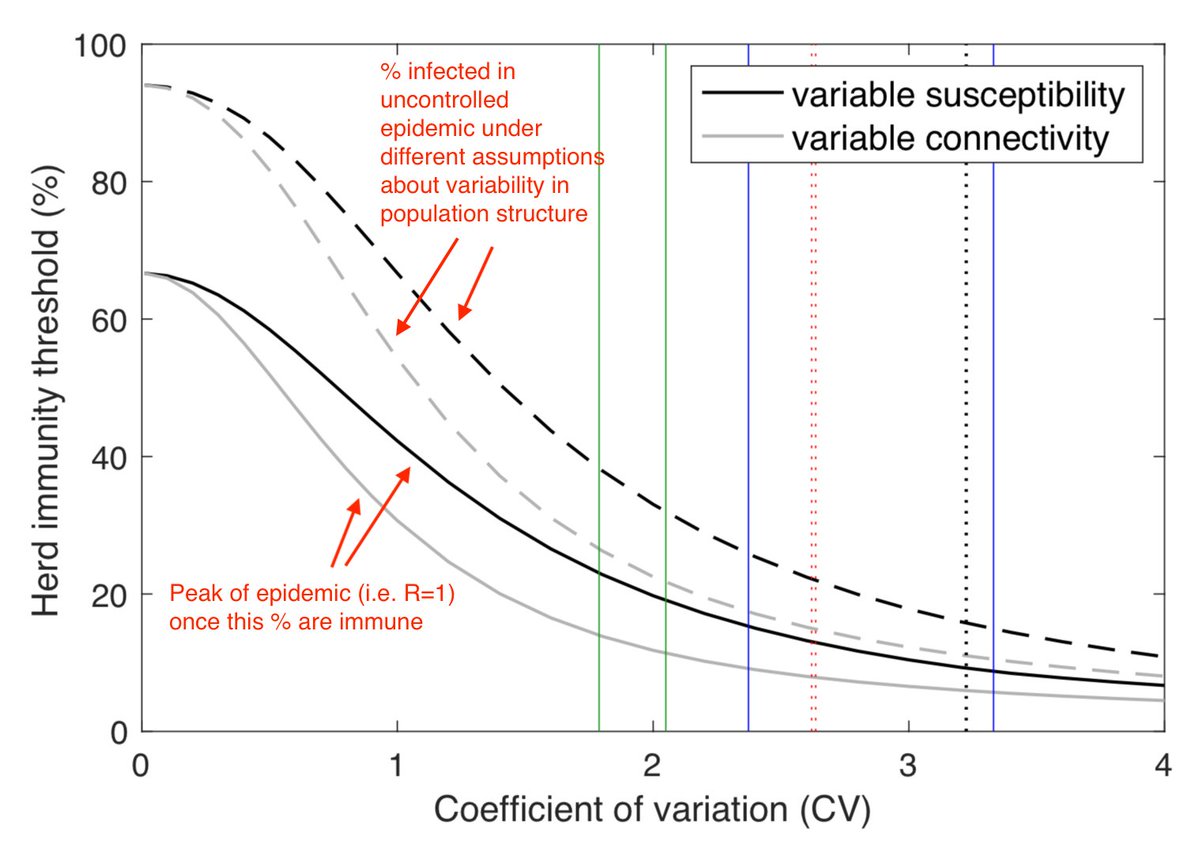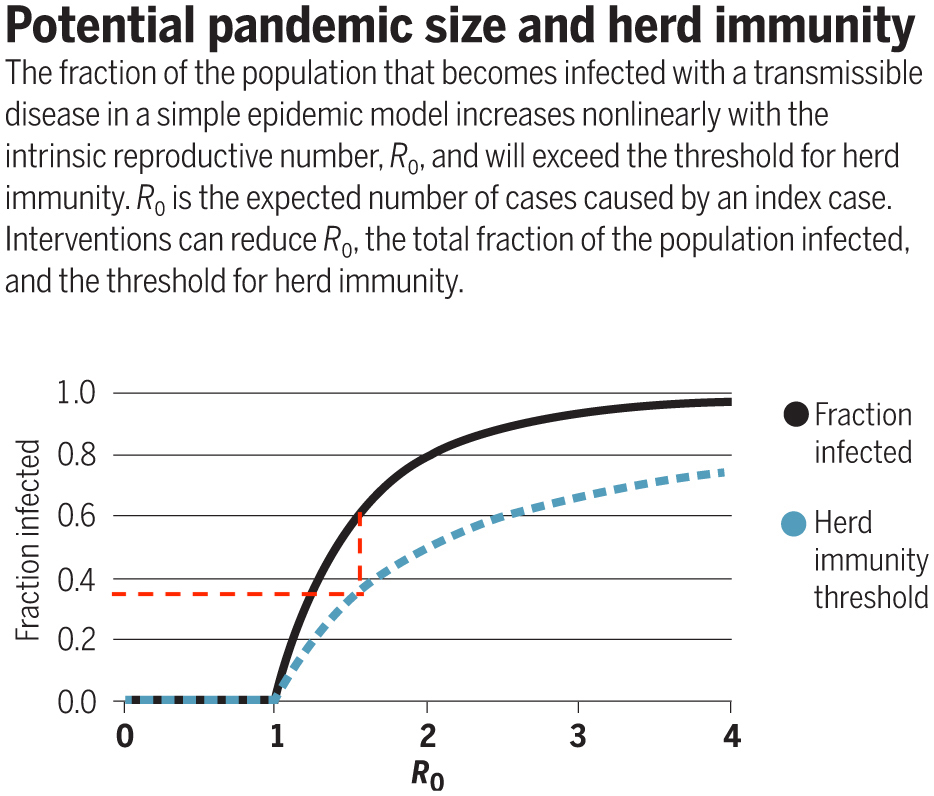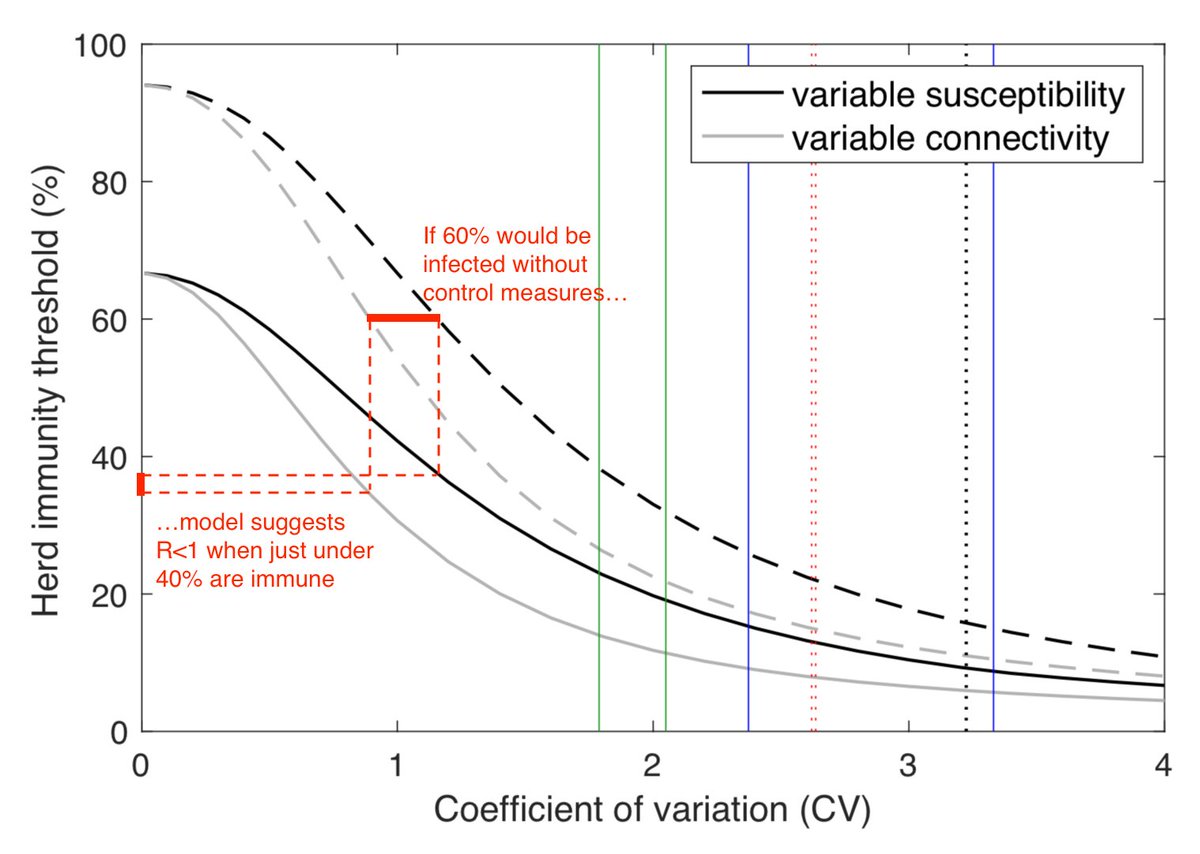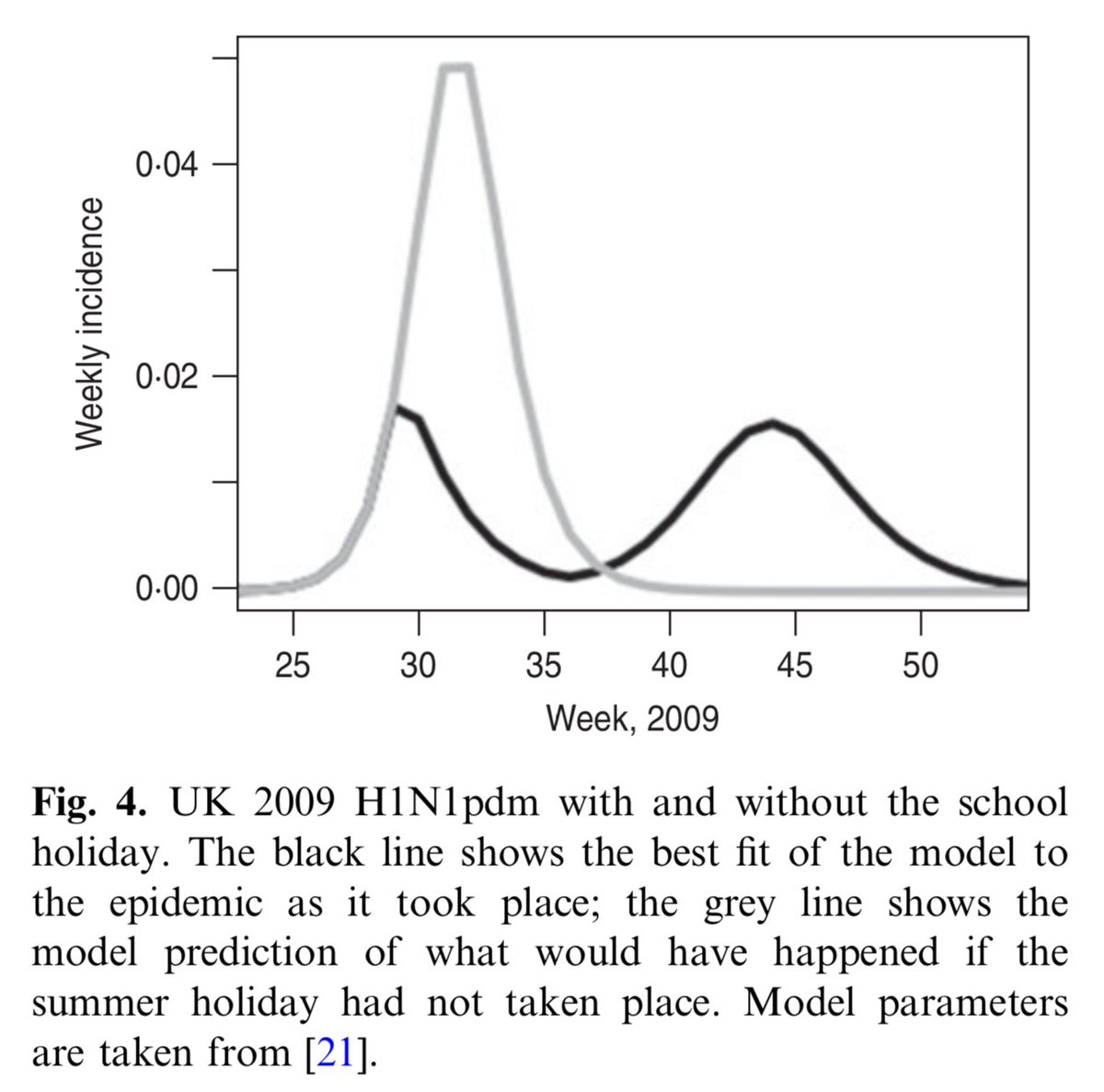I still see the persistent, but incorrect, claim that control measures just delay - rather than reduce - the impact of an epidemic. A thread on the problem of & #39;overshoot& #39;... 1/
This claim seems to arise from a misunderstanding about two related, but different metrics: the % of people infected during an epidemic, and the point at which immunity leads to a decline in transmission. 2/
In an uncontrolled epidemic, & #39;herd immunity& #39; is reached at the peak (because R<1 after this point), which means the final % infected is generally much larger than the herd immunity threshold. (Below from: https://science.sciencemag.org/content/368/6492/713/tab-figures-data)">https://science.sciencemag.org/content/3... 3/
Population structure (e.g. variation in connectivity/susceptibility) can change these values - below shows difference variation can make in models ( https://www.medrxiv.org/content/10.1101/2020.04.27.20081893v3).">https://www.medrxiv.org/content/1... But overall message is same – larger % is infected in uncontrolled epidemic than required to get R<1. 4/
As a hypothetical example, suppose we have an epidemic that would have infected 60% of the population without control measures. For this example, both of above plots imply herd immunity would have been reached when 35-40% acquired immunity. 5/
As a hypothetical example, suppose we have an epidemic that would have infected 60% of the population without control measures. For this specific made-up example, both of above models imply herd immunity would have been reached once 35-40% acquired immunity. 5/
In other words, there& #39;s overshoot of 20-25% in this example, i.e. people infected after the epidemic peaked and R was below 1. With control measures, initial R would be lower, which means peak occurs when % infected is below immunity threshold, reducing eventual overshoot. 6/
The exact % values aren& #39;t the key point here - the point is that *even if an epidemic isn& #39;t sustainably controllable in a population and will end in herd immunity, control measures can still massively reduce the disease burden sustained along the way*. 7/
As a tangible example of behaviour change reducing overshoot, take the 2009 flu pandemic in UK, where school summer holidays interrupted transmission. Had this not happened, it& #39;s been estimated epidemic would& #39;ve infected 20% more people than it did: https://www.cambridge.org/core/journals/epidemiology-and-infection/article/influence-of-school-holiday-timing-on-epidemic-impact/5F0E4508895BB1A1B33DF9BA31FD7277">https://www.cambridge.org/core/jour... 8/
For context, there are now several reports where % of community with antibodies to SARS-CoV-2 is around the 40-70% range, e.g. parts of Mumbai ( https://www.tifr.res.in/TSN/article/Mumbai-Serosurvey%20Technical%20report-NITI.pdf),">https://www.tifr.res.in/TSN/artic... Iquitos ( https://www.researchgate.net/publication/343414173_Seroprevalence_of_anti-SARS-CoV-2_antibodies_in_the_city_of_Iquitos_Loreto_Peru),">https://www.researchgate.net/publicati... Ecuador ( https://academic.oup.com/cid/advance-article/doi/10.1093/cid/ciaa1055/5876901),">https://academic.oup.com/cid/advan... Maranhao ( https://www.medrxiv.org/content/10.1101/2020.08.28.20180463v1)...">https://www.medrxiv.org/content/1... 9/
...Karachi ( https://www.ncbi.nlm.nih.gov/pmc/articles/PMC7444608/),">https://www.ncbi.nlm.nih.gov/pmc/artic... Ischgl ( https://www.medrxiv.org/content/10.1101/2020.08.20.20178533v1),">https://www.medrxiv.org/content/1... NYC ( https://www.nytimes.com/2020/08/19/nyregion/new-york-city-antibody-test.html?referringSource=articleShare).">https://www.nytimes.com/2020/08/1... But as above shows, it doesn& #39;t mean control measures made no difference. 10/
And finally, a note on what happens next in populations where a sufficient % have been infected to reduce R below 1: https://twitter.com/AdamJKucharski/status/1282975978915012608?s=20">https://twitter.com/AdamJKuch... 11/11

 Read on Twitter
Read on Twitter